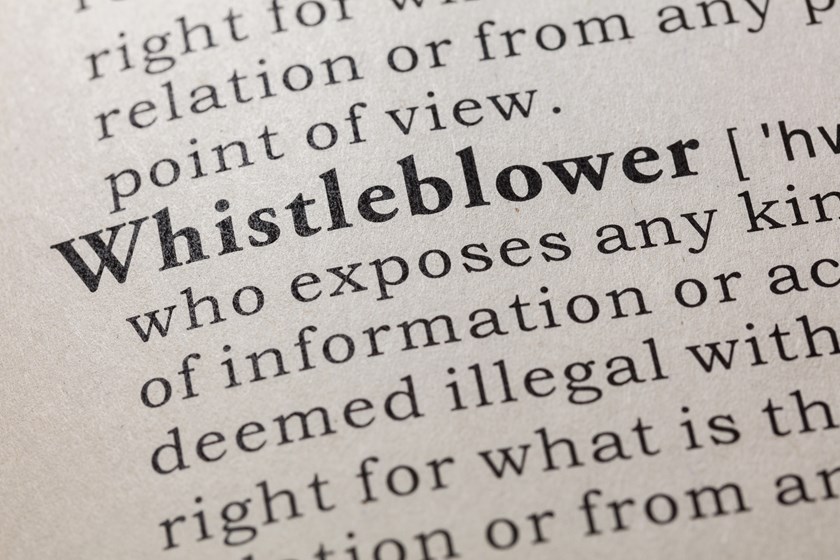Suspension during ongoing investigations: a balancing act
Insight

Suspension during investigations and suspension as a form of disciplinary sanction has been a regular news feature over the last month. The news cycle has ranged from coverage of a school teacher being suspended during an investigation into them showing an image of the Prophet Mohammed during a religious studies lesson to a Tory politician facing suspension from Parliament after an independent panel found he sexually harassed a member of staff.
The question of whether or not to suspend an employee under investigation is always a difficult one for employers to grapple with and has only become more of a live topic in the wake of the impact of #MeToo. This decision is often taken in a high pressured and time sensitive environment at the outset of the investigation process, when the employer does not have all of the information available. However, it is a crucial decision and can have significant reputational consequences on those involved. This article addresses the key questions employers need to consider when determining whether to suspend an employee during an investigation process.
When is it appropriate to suspend whilst an investigation is ongoing?
The first question to consider is whether there is reasonable and proper cause to suspend the employee or whether it is a knee-jerk reaction. Suspension may be necessary where, for instance, the employee’s presence in the workplace is likely to prevent a fair investigation from being carried out because it is probable that they will try to influence witnesses or destroy evidence, or where it is deemed that the employee is a potential threat to other employees. If there is a sufficient reason for the employee to be removed from their current environment, are there any alternatives to suspension which would achieve the same goal? For example, the employee could be moved into a different role, department or area of the office or required to work from home whilst the investigation is ongoing. Given the reputational impact of suspension, it should only be used as a last resort. These decisions, including the consideration of alternatives and the reasons for rejecting them, will need to be clearly documented and explained to the employee in question.
Ideally, the employee would have had a chance to input before the decision to suspend is taken and the employer will have gathered as much information as possible regarding the allegations. Whilst, of course, we appreciate that an employer cannot carry out a full investigation before making the decision to suspend, the employee or other key witnesses might be able to provide reassurance that an alternative to suspension is feasible or there is clear evidence which suggests that the allegations are unfounded, thereby changing the risk profile.
What are the key risks when suspending an employee during an ongoing investigation?
Whilst we would always recommend that it is clearly stated to the employee, preferably in writing, that the suspension is not considered to be disciplinary action, this does not remove the risk that the decision to suspend is criticised or becomes the subject of a claim by the suspended employee. Regardless of the reasons given within a workplace for the employee’s absence, suspension will inevitably damage the employee’s reputation and may impact the confidentiality of an investigation. Tribunals have made clear that suspension is not always “a neutral act”.
The employee could allege that in the absence of an express contractual right to suspend, the suspension itself is in breach of contract as they have an implied right to work. An implied right to work is more likely to arise where the employee’s suspension would prevent them earning a commission or other forms of remuneration, they need to work to maintain their public reputation or they need to work in order to exercise their professional skills.
Even where there is a contractual right to suspend, the employee could resign in response to the suspension, arguing that the suspension itself and/or the manner in which it is carried out was a breach of the implied term of trust and confidence and, therefore, they have been constructively dismissed. The employee could also argue that any decision to suspend was because of a protected characteristic that they hold or because of “whistleblowing” concerns they have raised in the past, particularly where the decision to suspend has been applied inconsistently in the past. The key ways to mitigate this risk are to ensure that there was reasonable and proper cause for the suspension, document the reasons and try to carry out preliminary investigations before taking the decision.
Does the employer need to pay the employee whilst they are suspended?
Generally speaking, whilst an employee is suspended they should continue to receive their pay and benefits in the normal way. It may, however, be possible to suspend without pay if it is clearly provided for in the contract of employment. However, there remains a risk the contractual right to suspend is fettered by the implied term of trust and confidence between the employee and employer. Therefore, even if there is a contractual right to suspend without pay, this should only be used in exceptional circumstances and with the benefit of legal advice.
How long should suspension last?
This is, of course, highly fact specific. However, as the Acas Code recommends, any suspension should be as brief as possible and kept under review. When an employee is suspended, they should be informed how long the suspension is likely to be and at what point it will be re-evaluated. Subject to any confidentiality restrictions, the employee should be regularly updated on the timeline and progress of the investigation. Employers should also ensure that the suspended employee is properly supported by someone who is not involved in the investigation and they are given a point of contact throughout in the event they have questions or concerns.
We would generally recommend that where suspension has been deemed necessary, it is crucial that the employer carries out the investigation as quickly and efficiently as possible to minimise the time the employee remains suspended. This is particularly difficult where there is a criminal or regulatory angle.
Our Employment team has many years’ experience handling complex and sensitive workplace investigations, acting for employers, employees or, indeed, carrying out the investigation as an independent team. Our range of investigation services and work examples are contained in our investigations brochure: please see here. Please do not hesitate to contact Kathleen Heycock, Maria Strauss, Hannah Taylor, or your usual contact in the team if you have any questions about investigations.
This publication is a general summary of the law. It should not replace legal advice tailored to your specific circumstances.
© Farrer & Co LLP, June 2021







